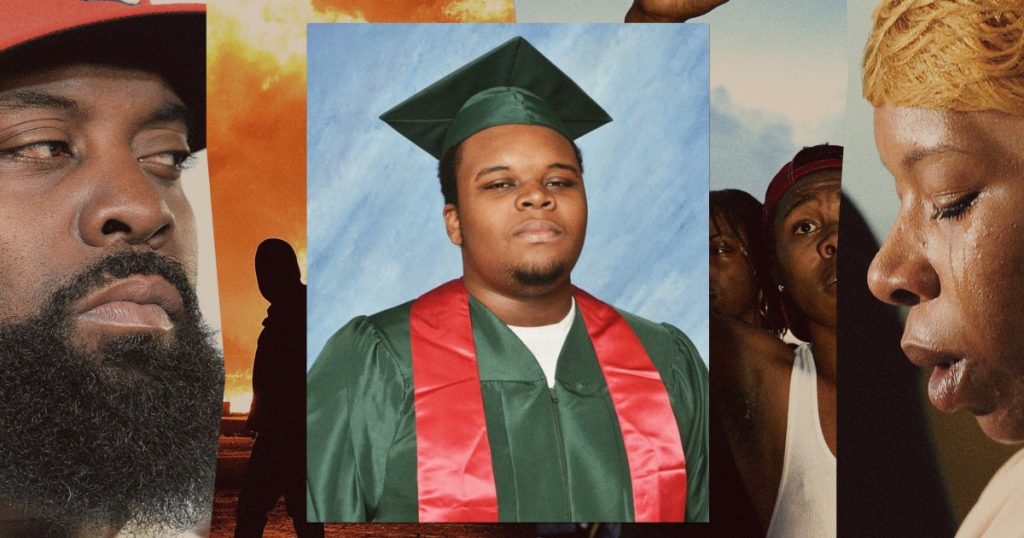Summarize this content to 2000 words in 6 paragraphs Friday marks a decade since Brown was shot multiple times by Officer Darren Wilson in the street on a hot Saturday afternoon, in front of several witnesses. Many of them said Brown was retreating and had his hands in the air. Wilson was relieved from duty but St. Louis County prosecutor Wesley Bell declined to charge him with a crime. So did the U.S. Department of Justice, which months later did issue a consent decree outlining the racist policing tactics used against Black residents in the city. The shooting and its aftermath took a toll on a crestfallen family and a city mired in underdevelopment. With the national spotlight on Ferguson, residents renewed their calls for improvements, but none of those cries have wrought substantial change in the 10 years since, they say. Few people understand this urgency, and frustration, more than Michael Brown Sr. The death of his son forced Brown, 45, to change, to “grow up,” he said. Once a reserved man, he has blossomed into a nonprofit leader and community activist, all the while grieving so intensely that he only began laughing again last year, he said.Michael Brown Sr., father of Michael Brown Jr., says the death of his son forced him to “grow up.” Now, he says, “I do a lot of my healing through my work” helping other fathers of slain children. Michael B. Thomas for NBC NewsAlmost everywhere in Ferguson are reminders of his 18-year-old child — on billboards, in businesses, on T-shirts. There is a feeling of communal connection to the family, an empathy that runs deep and an undying sense of grief because Brown was one of them. The ubiquitous image of Michael is also a reminder of the city’s unheard cries for investment and reform. “There has been a lot of money that’s come here through the death of Mike Brown,” his father said. “There’s a lot of stuff that has been built and put in place — but not in the right places. There’s still a lot of work that needs to be done.”Some parts of town have been upgraded with streetscaping; a National Urban League community center now stands where there was a QT convenience store that was burned down during the protests.The Urban League Community Development Center in Ferguson.Michael B. Thomas for NBC NewsLitter-riddled Coldwater Creek along West Florissant Avenue.Michael B. Thomas for NBC NewsBut most of those who spoke to NBC News said progress in Ferguson has been frustratingly slow. Decades of government records show Coldwater Creek, which runs nearby, has long been dangerously contaminated. Additionally, residents say more businesses have shuttered than opened along W. Florissant, the avenue at the heart of the unrest. The main thoroughfare looks almost identical to 2014, save for a Boys & Girls Club and a health clinic. New affordable housing has been minimal. The median family income here was $42,000 in 2014, about $9,000 less than the national average; it was $47,410 in 2022, far below the $74,580 national average, according to the most recent census.Justin Idleburg, a childhood friend of the elder Brown and member of Forward Through Ferguson, a group created to help local organizations, businesses and communities promote racial equity, said any influx of resources has had little impact on residents’ lives.


